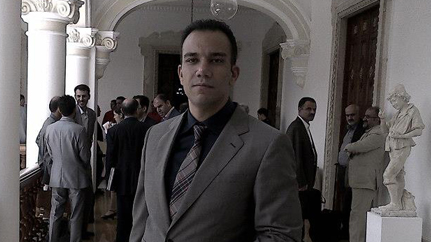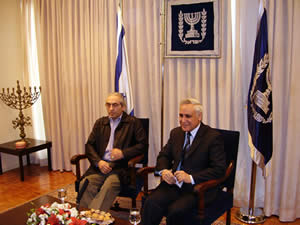 A new identity and a precious Canadian passport for a fugitive Mossad agent. A honeypot security officer working for Canadian immigration romancing an Iranian-Canadian businessman, and letting the cat out of the bag.
A new identity and a precious Canadian passport for a fugitive Mossad agent. A honeypot security officer working for Canadian immigration romancing an Iranian-Canadian businessman, and letting the cat out of the bag.
Who needs John le Carre? The smitten Canadian, Trina Kennedy, a senior national security investigator at Passport Canada, revealed to tall, dark and handsome Arian Azarbar that one of the 27 Mossad agents who assassinated Palestinian Hamas member Mahmoud al-Mabouh in 2010 in Dubai had escaped to Canada, where he was living under a new name, as free as a Canada goose.
It is the perfect occasion for one of Iran’s many talented film directors to turn to the world of international espionage. Poor Iran certainly has been exposed to enough of it since its revolution in 1979, though you wouldn’t know it from reading the news or watching Hollywood movies.

 Canadian rock legend Neil Young has taken to the road with a mission. Sunday night, he laid down the gauntlet
Canadian rock legend Neil Young has taken to the road with a mission. Sunday night, he laid down the gauntlet  This week’s anti-fracking protest has put Canada’s First Nations at the forefront of Canada’s political life, injecting spirit back into our moribund political scene. Canadians watching the evening news were shocked by scenes of burning police cars, an riot squad of 100 police wielding tear gas and tasers on horseback.
This week’s anti-fracking protest has put Canada’s First Nations at the forefront of Canada’s political life, injecting spirit back into our moribund political scene. Canadians watching the evening news were shocked by scenes of burning police cars, an riot squad of 100 police wielding tear gas and tasers on horseback.  Two recent events, while not of any great significance in themselves, reveal much about the state of Canadian foreign policy.
Two recent events, while not of any great significance in themselves, reveal much about the state of Canadian foreign policy.
 This month, Canada’s media solemnly related “the sad truth that the country engaged in a deliberate policy of attempted genocide against First Nations people”, referring to government-sponsored abuse of Native children a century ago, which Canada’s Chief Medical Officer Peter Bryce exposed in 1907, but which was hushed up. Bryce was fired and the post of chief medical officer abolished in 1919.
This month, Canada’s media solemnly related “the sad truth that the country engaged in a deliberate policy of attempted genocide against First Nations people”, referring to government-sponsored abuse of Native children a century ago, which Canada’s Chief Medical Officer Peter Bryce exposed in 1907, but which was hushed up. Bryce was fired and the post of chief medical officer abolished in 1919. 



